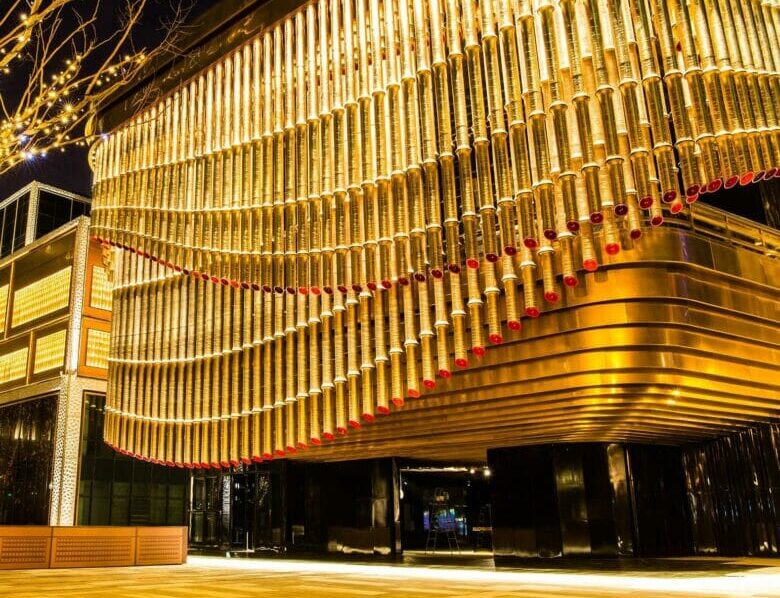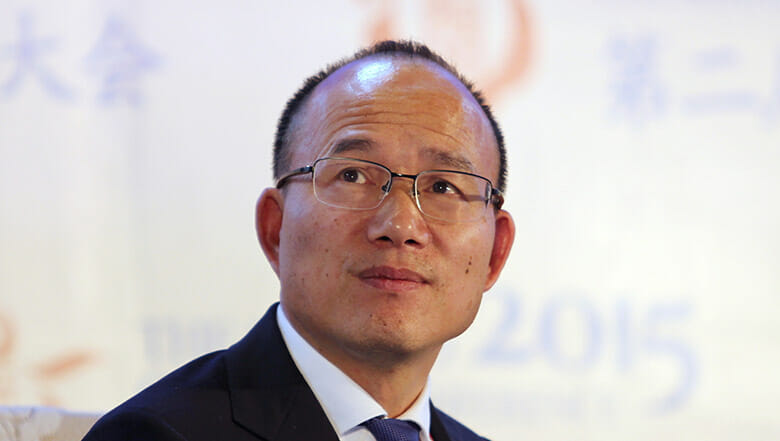
Fosun has refocused on core investments like its Bund Finance Center in Shanghai
S&P Global Ratings downgraded the credit of Fosun International last week, citing the mainland investment giant’s thinning liquidity buffer and under-pressure capital structure.
The credit ratings giant demoted the conglomerate led by chairman Guo Guangchang by one notch to BB- for the company’s long-term issuer credit rating and senior unsecured debt rating, with a negative outlook.
The Shanghai-based firm is in a difficult position created by its reliance on short-term borrowings in an environment where financing channels are narrowing for China’s privately run companies, S&P said Friday in a release.
“Following multiple property developer defaults in the past 12 months and macroeconomic challenges, the offshore bond market for high-yield issuers and the longer-tenor onshore bond market for privately owned companies — Fosun’s frequent funding avenues in previous years — have been practically shut over the past few months and will likely remain so for at least two more quarters,” the agency said.
Tightrope to Walk
S&P described recent market developments as a “confidence test” for Fosun, with the company walking a tightrope to manage its liquidity.

S&P says Fosun boss Guo Guangchang is performing a high-wire act (Getty Images)
Without bond market access, Fosun must rely on bank loan refinancing and asset disposals, in addition to RMB 14.3 billion in cash on hand at the holding company as of June, to meet the short-term maturities, the agency said. By S&P’s calculations, Fosun’s liabilities coming due between July 2022 and June 2023 include a RMB 28 billion bond and RMB 33 billion in bank loans.
To add to the strain, Bloomberg reported last Tuesday that Chinese officials had told the country’s biggest banks and state-owned firms to start a round of checks on their financial exposure to Fosun. In a Thursday response, Guo threatened to sue the news provider for what he termed a false report that deviated from the facts and misled investors.
S&P acknowledged media reports of a potential syndicate loan in the amount of RMB 10 billion, but the agency said Fosun would likely need more refinancing channels to reopen in order to regain a comfortable liquidity buffer.
Back to Basics
Notorious for its busted bets on faded brands like Club Med and Thomas Cook, Fosun has sought to pare back its overstretched holdings and refocus on core investments.
Hong Kong media reported earlier this month that the company was planning to trim its stake in Fosun Tourism Group after previously reducing its shareholding in Fosun Pharma, which owns the marketing rights to the Pfizer-BioNTech COVID-19 vaccine in China.
In March, Fosun agreed to repurchase a 50 percent stake in its Bund Finance Center for RMB 6.34 billion ($1 billion), nearly six years after offloading the half-interest in the Shanghai waterfront complex.
Upon acquiring the stake from shadow banking firm Zhongrong International Trust, Fosun reclaimed full ownership of the commercial complex, which held its grand opening in 2019 and has a gross floor area of 425,392 square metres (close to 4.6 million square feet) across office, retail, hotel and cultural space.
Leave a Reply